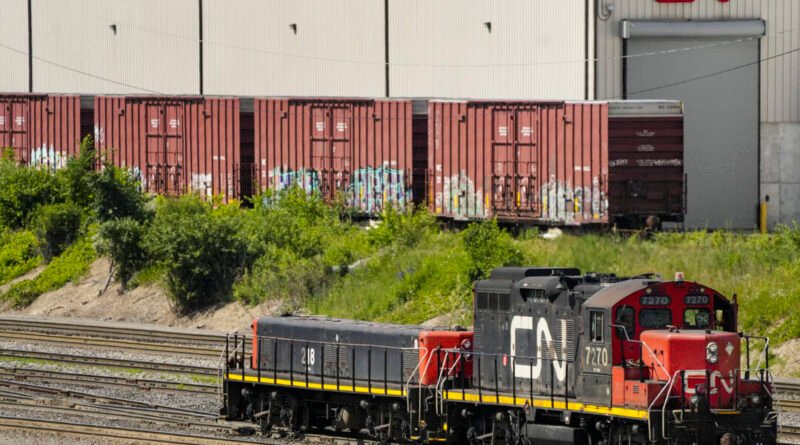Railways Cease More Cargo Operations as Lockout Looms and Tensions Escalate
As tensions build at the bargaining table, the country’s two main freight railways are turning away a growing number of goods ahead of a potential work stoppage next week that could disrupt supply chains and industry.
Canadian National Railway Co. schedules show that, starting Friday, it barred container imports from U.S. partner railways. After this Wednesday, no more of the 40,000 containers CN hauls each week will enter its network—regardless of origin—according to one timetable.
An embargo on all new cargo pickups at Canadian Pacific Kansas City Ltd. is coming even sooner—Tuesday morning, it said in a statement Friday night.
“We must take responsible and prudent steps to prepare for a potential rail service interruption next week,” said spokesman Patrick Waldron.
CN and CPKC have already halted shipments that need cooler temperatures, such as meat and medicine, to avoid seeing stranded loads go bad should a work stoppage occur.
Rail lines carry more than $1 billion worth of goods each day, according to the Railway Association of Canada. More than half of the country’s exports travel by rail.
The two railroad operators have warned that 9,300 engineers, conductors and yard workers will be locked out at 12:01 a.m. on Thursday unless they can reach new collective agreements, while the Teamsters Canada Rail Conference has also said it is poised for a strike.
CN claimed the union’s bargaining team “failed to show up” for talks at a hotel in downtown Montreal on Friday.
“CN can’t negotiate with an empty chair,” said spokesman Jonathan Abecassis.
The union did not immediately respond to requests for comment.
On Thursday, federal Labour Minister Steven MacKinnon rejected a request from CN to impose binding arbitration as the negotiating clock ticks down.
Both sides returned to the bargaining table last week amid an ongoing deadlock over scheduling and wages, with shipments of chlorine for drinking water already halted as part of a phased shutdown poised to progress even further next week.
Industry players, including chemical producers, are growing more alarmed by the day.
“We’re already in a strike for chlorine,” said Alan Robinson, commercial vice-president at Chemtrade Logistics Inc. The Toronto company says it provides chlorine for 40 percent of Western Canada’s drinking water, as well as much of the western United States.





